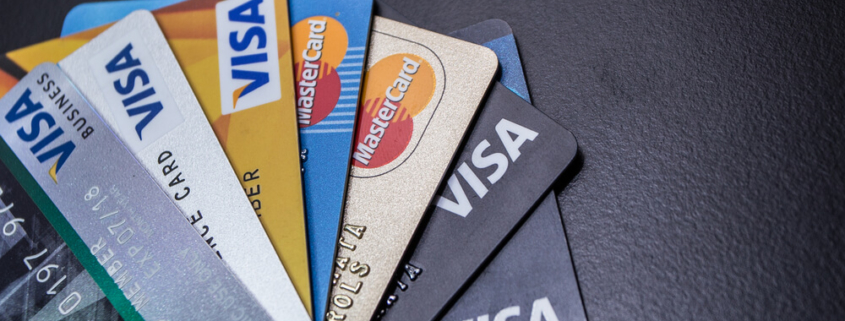What Happens to My Credit Card Debt If I File for Bankruptcy?
Credit card debt is a leading cause of unmanageable finances. According to Experian, the average credit card balance of Americans is $5,525, with some states having average credit card debt as high as $7,089.
Those are significant figures, but many families are able to pay down debt when it gets too high. But what if your credit card debt becomes so unmanageable that you consider filing for personal bankruptcy? Here is what happens to your credit card debt when you choose bankruptcy for debt relief.
The Risks Associated with Unmanageable Credit Card Debt
When you fall behind on your credit card payments, you can get into serious financial trouble quickly. Some of the consequences of unmanageable credit card debt include:
High Interest Rates and Fees
Credit card companies charge incredibly high interest rates to customers who don’t pay off their balances at the end of the month. And, if you get behind or miss a payment, you’ll begin to accumulate late fees. Even worse, some credit card companies will charge higher rates and fees if you become a credit risk.
Debt Collection Actions
If you stop paying your credit card debt, the creditor will eventually send you to collections. You’ll start to get harassing letters and phone calls from debt collectors. If you ignore them, the company might even file a lawsuit, and you can get a default judgment against you by the court.
Damaged Credit Rating
Unmanageable credit card debt will inevitably lead to a damaged credit rating. With a lower credit score, you will have trouble borrowing money to purchase a home or buy a car. Your credit rating might even impact your career prospects.
Credit Cards Are Generally Considered Unsecured Debt
It’s important to understand that most credit card debt is considered unsecured debt. Secured debt has assets backing it up, such as a car for a vehicle loan or a house for a mortgage. Credit card debt is unsecured because there is no collateral that the creditor can take if you fail to pay as promised.
While unsecured debt is based on your credit rating and promise to pay, creditors are able to take action if you don’t live up to your end of the bargain. Specifically, they can send you to collections, file a lawsuit against you, and even garnish your wages if the court allows them to do so.
What Happens to Credit Card Debt When You File for Bankruptcy?
Having out-of-control credit card debt is never enjoyable. People make mistakes with credit cards. But just as many people get into financial situations, such as job losses and unexpected medical crises, that they feel must be managed through credit card debt.
When bill collectors won’t leave you alone, and you are unable to pay on the debt, something has to give. It’s challenging to live with the anxiety of daily harassment by creditors. Fortunately, personal bankruptcy can stop the harassing phone calls and letters instantly.
When you file for bankruptcy, you get an automatic stay, which takes effect immediately. Credits are notified that they are no longer permitted to take any actions to recover debts until your case is resolved. The calls and letters will stop.
Bankruptcy Options for Credit Card Debt
There are several different types of personal bankruptcy that can address credit card debt.
Chapter 7 Bankruptcy and Credit Card Debt
Chapter 7 bankruptcy is referred to as a liquidation bankruptcy. In essence, some of your assets are sold to pay off a portion of your debts. Because of various exemptions, many people who file for Chapter 7 don’t have to give up any assets. For example, you can keep your home and vehicle as well as some personal items. Once your Chapter 7 bankruptcy is finalized, your credit card will be erased, and you will have a clean slate.
Chapter 13 Bankruptcy and Credit Card Debt
Chapter 13 bankruptcy is the other type of bankruptcy that addresses credit card debt. This is a repayment plan bankruptcy, requiring you to repay a portion of your debt over three to five years. Once you complete the repayment period, any remaining debt will be fully discharged.
Credit Card Debt That Can’t Be Erased Through Bankruptcy
Most unsecured credit card debt can be addressed through personal bankruptcy. But, if you used your credit cards to pay for certain items that are not dischargeable in bankruptcy, those expenses could be disallowed. Examples include alimony, child support, student loans, and back taxes.
Gulf Coast Bankruptcy Attorney works diligently to provide the most up-to-date and accurate information about debt relief and bankruptcy for residents of the Gulf Coast region. Our resources are meant to help readers make informed decisions about their financial wellbeing and the possibility of personal bankruptcy.




Leave a Reply
Want to join the discussion?Feel free to contribute!